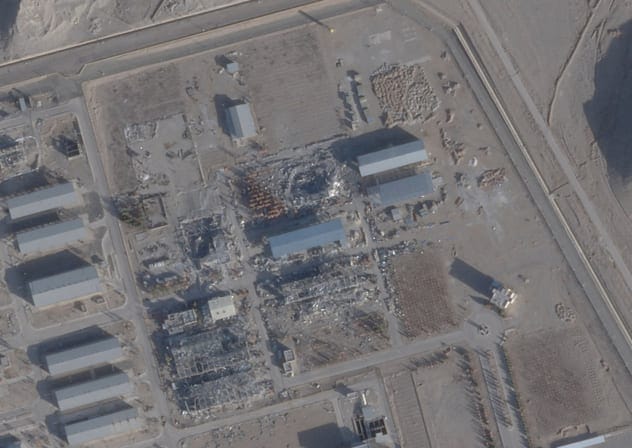Iran stored highly enriched uranium at underground site, IAEA report says
This is the first time the IAEA has reported where uranium enriched to up to 60% purity, close to the 90% of weapons grade, has been stored.

This is the first time the IAEA has reported where uranium enriched to up to 60% purity, close to the 90% of weapons grade, has been stored.




The regime, rights groups stated, would routinely force the families to register their loved ones posthumously as members of the paramilitary Basij militia, a force affiliated with the IRGC.

According to the global commodity data provider site Kpler, the recent average has been approximately 10 million barrels of crude oil and condensate per week.

In his State of the Union address, US President Donald Trump claimed that Iran was “working on missiles that will soon reach” the United States.

Iran and its proxies may attempt direct military action, and mobilize terror attacks or sabotage activity within Israel in retaliation for US strikes, the Alma Research and Education Center analyzed.

The briefing came while the Trump administration's special envoy Steve Witkoff and Trump's son-in-law Jared Kushner were in Geneva holding nuclear talks with Iran.

Hezbollah said that it will stay out of the war and not attack Israel if any American or Israeli attack on Iran is limited to certain Iranian capabilities.

A deal would also have to require thorough accounting for Iran's stock of enriched uranium. Any doubts about that could trigger a new conflict.

Bayt-e Rahbari has allowed Khamenei’s authority to remain intact in his absence and, according to United Against Nuclear Iran, highlights the regime’s durability.

Legal analysts cited in Western coverage say the ICC faces jurisdictional challenges because Iran is not a member of the Rome Statute.

These are important talks and come amid tensions between the US and Iran.
